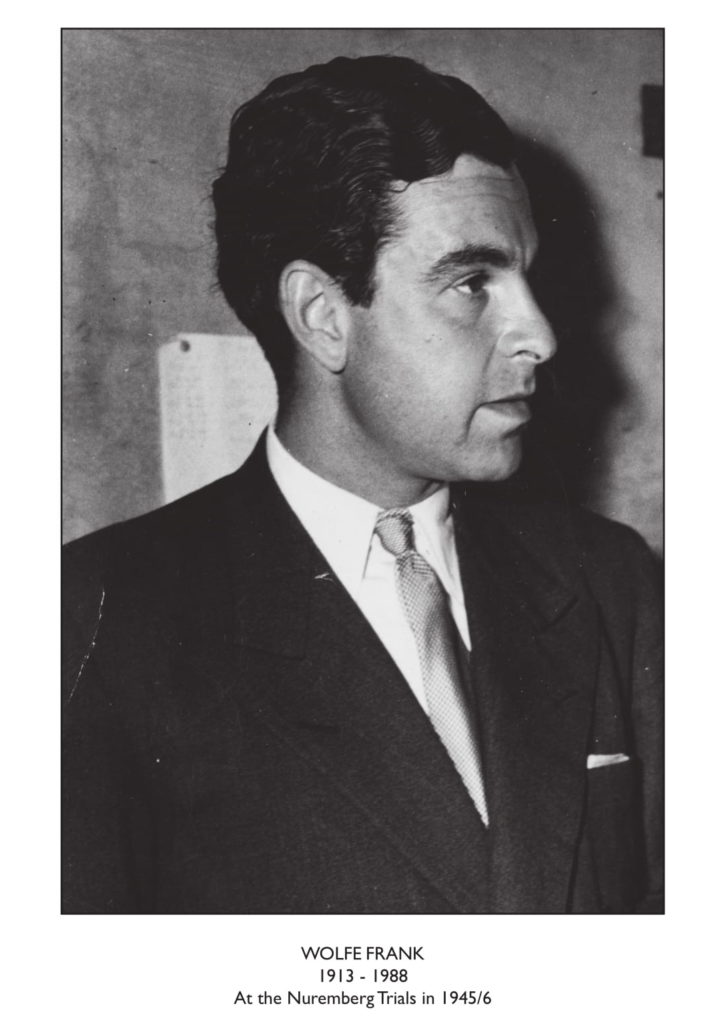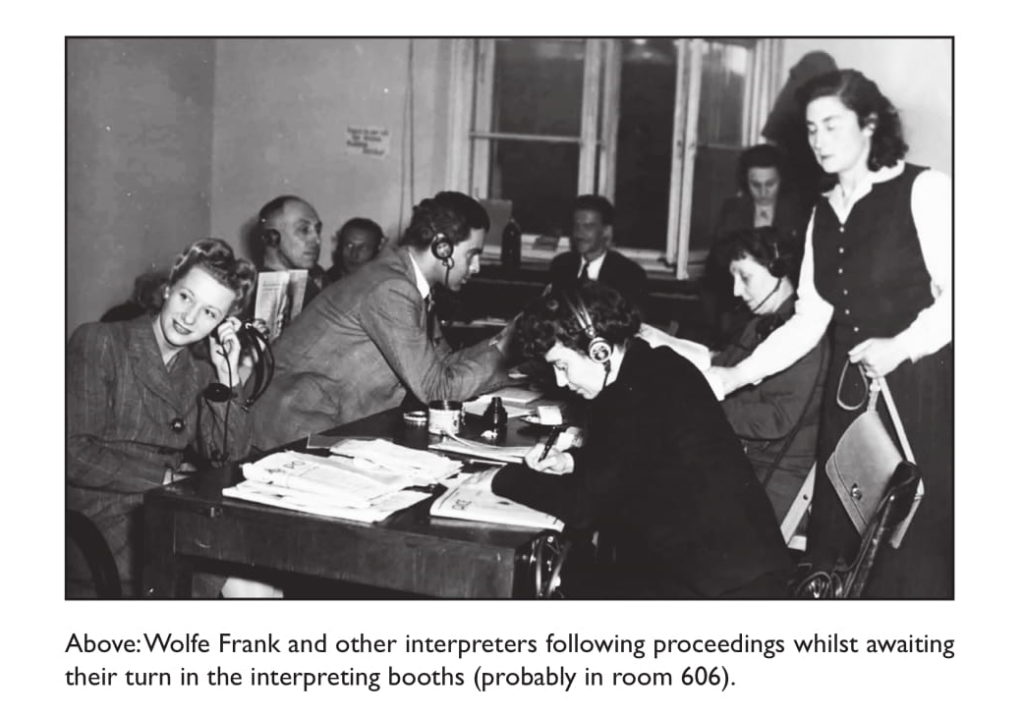Meet the author: Paul Hooley
Today on the blog we have a Q&A with Pen and Sword author Paul Hooley.
Nuremberg’s Voice of Doom and The Undercover Nazi Hunter are two unique books based on the extraordinary memoirs, life, times and involvements of Wolfe Frank Chief Interpreter at ‘History’s Greatest Trials’ and intrepid undercover reporter for the New York Herald Tribune – as compiled, edited and expanded upon by Paul Hooley
The original and full Q&A featured in History of War magazine.
What were the circumstances that led you to editing Frank’s papers into a book?
In 2015 a friend of mine, Mike Dilliway, was moving home and came across boxes and briefcases full of documents that he had inherited from a friend, Wolfe Frank. Mike had placed the cache in his loft where it remained undisturbed for over 25 years. Not knowing what to do with the collection he asked me to see if the archive contained anything of importance. After having sorted, catalogued, researched and checked several thousand sheets of data, my heart soared with excitement at the realisation of important discoveries.
The collection turned out to be the memoirs and associated documents of Frank who had been the chief interpreter at the International War Crimes Trials in Nuremberg. The archive was a historian’s dream.
What was his personality like?
All those I have spoken to who knew Frank remembered him as a charming, imposing and modest man of good taste and manners. He was always impeccably dressed and kept very much to himself. However, in spite of appearing to be the quintessential Englishman, he was a refugee who had fled Nazi Germany in 1937 and was branded “an enemy of the state to be shot on sight”. He had also been a strikingly handsome man and was irresistible to the ladies. Frank was a unique character of extreme contrasts. He spent a lifetime in the fast lane enjoying himself, even during the most difficult of times. It cannot be denied that he was a maverick who took liberties and was a playboy, risk taker, serial adulterer and heavy drinker. However he was also a man of immense courage, honour and ability. His handling of the translations, interrogations and interpretations at Nuremberg sets him apart from all other interpreters of his time, perhaps of all time. He was asked to undertake the toughest assignment imaginable and was perhaps the only man in the world who could have satisfied all concerned.

What were Frank’s initial experiences during the war?
In spite of his known heroism as a resistance worker and having been officially declared an enemy of the Third Reich, Frank was arrested at the beginning of WWII, along with all other former German and Austrian citizens, and interned as an enemy alien. Frank was determined to clear his name, gain his freedom and join the British Army. Within weeks of his detainment he was appointed “camp leader” and applied pressure on those commanding the various camps. Frank’s persistence eventually paid off and he was not only released, but allowed to enlist in the British Army’s Auxiliary Pioneer Corps. In December 1944 he joined the Royal Northumberland Fusiliers as a second lieutenant.
Which Nazis did Frank translate for and encounter?
Quite apart from being an interpreter, Frank was also an investigator, interrogator and evidence gatherer. He was additionally given the task of helping the defendants choose their lawyers. These roles brought him into contact with all the war criminals particularly during the first and most major trial of the top 24 Nazis. This included Goering, Rudolf Hess, Joachim von Ribbentrop, Wilhelm Keitel, Albert Speer and perhaps the most evil of them all, according to Frank, Otto Ohlendorf.

How did he acquire his nickname ‘The Voice of Doom’?
From the moment the trials started, Frank became a central fi gure at all stages. He interpreted the tribunal’s opening remarks, was used more than any other interpreter, and then finally brought proceedings to a close by informing the defendants of their fate. This was a duty, simultaneously listened to by an estimated radio audience of four hundred million, which led the world’s media to dub him the ‘Voice of Doom’. The first and last words the defendants heard in their own language at Nuremberg were uttered by Wolfe Frank, a man they trusted implicitly and for whom they had the highest possible regard.
Frank describes his announcing of the death sentences to 11 of the accused as the tensest hour of his life. Even this was not without further incident. As he was about to inform Goering of his fate, the sound equipment cut out. Goering shrugged at Frank to indicate he could not hear what was being said.
Once fixed, Frank resumed and Goering gave him a thin smile and a thumbs-up sign, to indicate he could hear again. This was at the very moment Frank announced “death by the rope”. It was a surreal moment that haunted Frank for the rest of his life.
How does it feel to have posthumously published his autobiography and what is your personal opinion of Frank?
I knew it was my duty to ensure that the important historical information contained in Frank’s memoirs became more widely known. I hope I have done him justice and told his story the way he would have wanted it presented, warts and all. I also hope that readers will see what I see, that there was once a man whose “superlative scholarship, administration, intellect and integrity” won him the unreserved praise of all who witnessed his performances on a world stage. He was a major contributing factor in the success of the “greatest trial the world has ever seen”.

Nuremberg’s Voice of Doom is available to order now from Pen and Sword.

The Undercover Nazi Hunter is available to order now from Pen and Sword.

